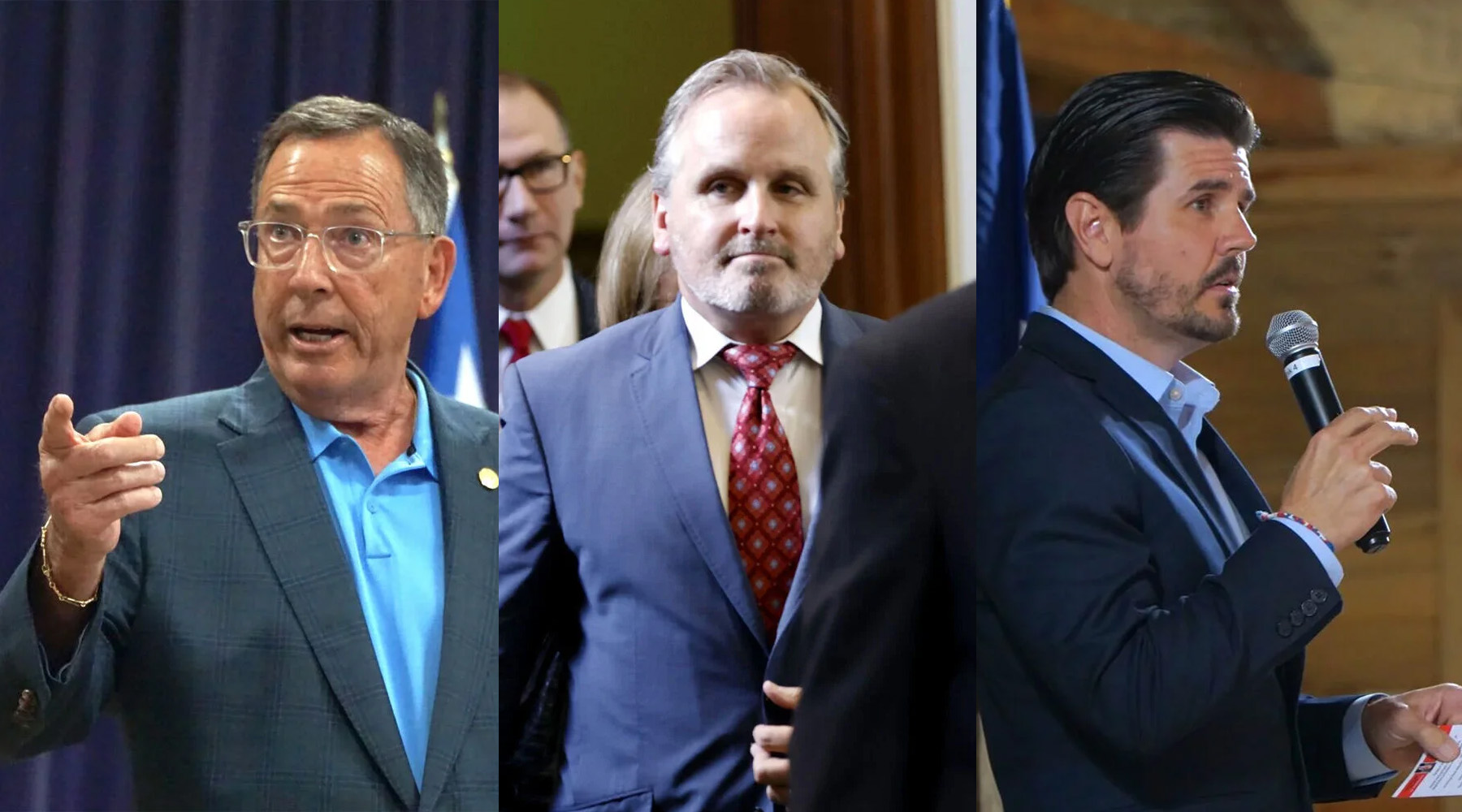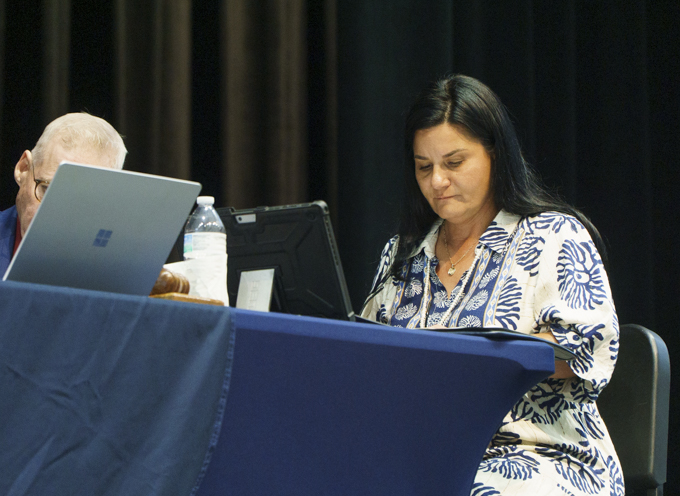Longview-area lawmakers support governor’s priorities for special legislative session
Published 5:00 pm Tuesday, July 15, 2025
Lawmakers representing Northeast Texas say they’ll support Hill Country flood relief, implementation of disaster warning systems, elimination of the standardized STAAR test and more anti-abortion measures during a special session of the state Legislature.
Legislators will return to Austin on July 21 to address several priorities set by Gov. Greg Abbott. The session will last 30 days.
Here’s what Sen. Bryan Hughes as well as state Reps. Jay Dean and Cole Hefner have said about the topics to be addressed.
Disaster warnings
Trending
Since the July 4 weekend flooding devastated the Hill Country and killed dozens of people, Texans have questioned whether victims had enough warning of the impending flood. Lt. Gov. Dan Patrick said he believes the installation of outdoor warning sirens in the area could help prevent future loss of life.
While emergency phone alerts have become a common warning method, those warnings can be ignored or might not reach a person if his or her phone doesn’t have adequate signal. But outdoor warning sirens, such as those used for warning people about tornadoes, are harder to miss.
“Old-school technology sometimes can be the best,” said Hughes, R-Mineola.
Sirens weren’t in place in the areas affected by flooding because of cost. Dean, R-Longview, said state leaders should step in to pay that cost, even if it draws the ire of people who don’t want to see government spending increase.
Hefner, R-Mount Pleasant, also said warning systems should have been in place.
“Government’s job is protecting the public safety of its citizens,” Dean said.
Trending
Lawmakers will communicate with experts in the Hill Country area to determine the region’s needs.
Dean, Hughes and Hefner commended the work of first responders who’ve taken part in search and rescue efforts and are helping people in the region recover.
“I think our first responders have done a phenomenal job,” Hefner said.
STAAR test
Regardless of political persuasion, eliminating the STAAR is “one thing we all agree on,” Hughes said.
State lawmakers didn’t pass a bill eliminating the test during the regular legislative session because House and Senate leaders couldn’t agree on how to replace the exam. House Bill 4 would have replaced the STAAR with three shorter exams to be administered throughout the school year, the Texas Tribune reported.
Hefner said schools need accountability and improvement, “but we need to make sure that we’re testing the right things.”
“Everybody you talk to says that STAAR test is a problem,” Hefner said. “I think we need to look at a different way to go about establishing that accountability, to make sure our kids are learning like they should be.”
Hughes echoed concerns that educators have raised: Preparing students for the STAAR can “dominate” a school year. He said he supports replacing it with an effective tool to measure student growth. Such an assessment would need to be the same across the state so that schools can be compared “to see which ones need help,” he said.
Dean said he, too, supports eliminating the STAAR.
THC restrictions
During this year’s regular legislative session, lawmakers passed Senate Bill 3, which would have banned consumable products containing THC. THC-infused products often are marketed in ways that make them look like candy and are appealing to children, and they contain massive doses of the drug that can seriously harm children, lawmakers said.
Abbott vetoed the bill, saying it wouldn’t withstand constitutional challenges but that lawmakers need to pass additional regulations to protect children from THC.
“Because of federal law, children have access to intoxicating THC products,” Hughes said. “Some stores tell us that they are preventing children from accessing them, and I’m glad, but there’s no guarantee. There’s no proof of that, and sadly, the law today does not protect children from those products.”
Hefner said laws should not permit children to access THC-infused products, and facilities that sell those products shouldn’t be near schools, parks and other places that children frequent. Products also shouldn’t be marketed toward children.
Hughes said lawmakers should continue to support the state’s medical marijuana program and that doctors “ought to be able to prescribe THC if the doctor believes it’s the best for the patient.”
“Most folks I’ve heard from are in favor of a ban, but the details are what we have to get right,” Hughes said.
The day after Abbott vetoed the ban, Dean wrote on Facebook that he supports regulating, but not banning, THC-infused products.
“We saw way too many products packaged to look like candy that were clearly being marketed to children. That’s unacceptable and irresponsible,” Dean said. “We would not tolerate [that] from the alcohol industry, and we shouldn’t here, either. Regulation is acceptable. Prohibition is not.”
Taxpayer-funded lobbying
Texans overwhelmingly oppose taxpayer-funded lobbying, which occurs when government entities use tax dollars to hire contract lobbyists to advocate for legislation in Austin, according to the Texas Public Policy Foundation.
In 2023, local governments spent more than $98 million to hire lobbyists, a practice 80% of Texans oppose, the policy foundation reported. A bill to ban taxpayer-funded lobbying died during the regular legislative session.
Sen. Mayes Middleton, who authored the bill during the regular session, noted that taxpayer-funded lobbyists oppose taxpayers’ interests by opposing property tax relief, Forbes reported.
Hefner and Hughes said they support a ban on taxpayer-funded lobbying. Whether other lawmakers will, however, remains to be seen.
“I think the votes could be there, but it’s going to be a little bit close,” Hefner said.
As of publication, Dean had not responded to a request for comment asking if he supported a ban on taxpayer-funded lobbying. Dean has previously voted to ban taxpayer-funded lobbying, according to the Young Conservatives of Texas.
Abortion pills
Texas lawmakers could vote to ban abortion pills in Texas, a decision Hughes and Hefner said they support.
Texas has some of the strongest anti-abortion laws in the nation. Hughes authored the 2021 Heartbeat Act, which allowed doctors to be sued for performing abortions in the state.
During this year’s regular legislative session, Hughes authored Senate Bill 2880, which would allow people who manufacture, mail or deliver abortion pills to people in Texas to be sued. Like the Heartbeat Act, mothers could not be sued. The Senate approved the bill, but it wasn’t passed out of a House committee in time for a full vote.
Hughes said the ban on abortion pills is necessary because mothers aren’t taking the medication under medical supervision, and some have experienced serious medical complications as a result. A mother who takes the pills wouldn’t be aware that she is “putting her life at risk” without seeing a doctor.
“In most cases, the moms taking these pills are alone in their homes, maybe in their bathrooms. You can imagine what that would be like for a mom going through that,” Hughes said. “Big pharma is mailing these pills into Texas against the law, killing little unborn babies and hurting and even killing mothers in Texas.”
Hefner said there are “horror stories” about how young mothers have taken abortion pills and experienced serious complications.
Dean did not respond to a request for comment asking for his stance on a bill to ban abortion pills, but he has supported anti-abortion legislation.
Protecting trafficking victims
Lawmakers will decide whether to pass a bill that prevents victims of human trafficking from being prosecuted for committing non-violent crimes while they’re being trafficked. In essence, the bill would prevent them from being prosecuted for prostitution when they are forced into it, Hughes said.
“They’re not doing that voluntarily. They’re being forced. They’re being coerced, sometimes physically coerced,” Hughes said. “They are victims. They are not guilty of a crime in a situation like that. So, when we have a human trafficking victim, and their abusers have forced them into things like that, we want to make sure that they’re protected.”
Lawmakers passed a similar bill during the regular legislative session, and it passed unanimously in the Senate and without opposition in the House. Abbott vetoed the bill, saying it would allow victims to be free from prosecution for crimes such as murder, rape and terrorism, but that protections for trafficking victims should be in place.
Additional topics
Lawmakers will consider a bill Hefner authored during the regular session that would prevent unsubstantiated claims against police officers from being released to the public.
Lawmakers also will address congressional redistricting, which is an emerging political topic in light of the Trump administration’s push to ensure Republicans maintain control of the U.S. House.









